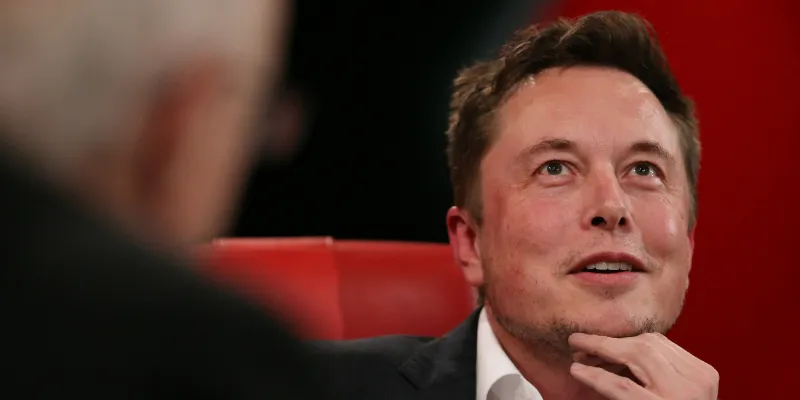Elon Musk's 'mind bending thoughts' on Hyperloop, Mars mission and scepticism of AI
Elon Musk, the Founder of SpaceX and CEO of Tesla is a revered name in the tech industry for multiple reasons. Recode aptly has been referred to him as “the closest thing we’re likely to get to a real-life comic-book superhero" (or supervillain, depending on who you ask). His earlier successes include Zip2, PayPal and he has now been likened to a metal-bending, gravity-defying demigod for his most recent successes.
In his chat with Kara Swisher and Walt Mossberg at Recode’s annual conference ‘Code’, going on in Rancho Palos Verdes, California, he talks about SpaceX, Mars, Aartificial Iintelligence (AI) and Hyperloop. Here are a few interesting highlights:

Image credit- Recode.net
Functioning of SpaceX
SpaceX, which designs, manufactures and launches rockets and spacecraft, was founded with a vision to revolutionise space technology.
On the company's progress on that front so far, Musk said, “The most significant thing is to be able to land an orbit-class rocket on land at Cape Canaveral, Fla as well as on a drone ship out in the ocean”.
He acknowledged the fact that it’s difficult to understand the importance of this feat. He explained: every rocket contains a boost engine, which happens to be the costliest part of the rocket (about $35 million). The significance of this part is to give the rocket required elevation, and then this part splits off. Till now, boost engine wasn’t reused. So basically, $35 million was wasted on every lift-off. SpaceX plans to reuse that part.
So, instead, SpaceX continues the boot-stage on the ballistic arc, and makes it land on a drone ship with an accuracy of one metre, hence saving $35 million from certain destruction. He added, “We plan to re-fly the rocket hopefully in around 2 or 3 months”.
Humans want to be multi-planet species. You need things like that to be glad to wake up in the morning. Life can’t be just about solving problems. There have to be things that are inspiring and exciting and make you glad to be alive.
By the end of this year, SpaceX also plans to launch Falcon Heavy, “the most powerful rocket on the planet by more than a factor of two”, Musk mentioned, admitting to a six-month backlog.
SpaceX plans to launch a rocket to Mars by 2018. Later this year, Musk will be presenting a proposal for Mars colonisation: sending a mission to Mars every 26 months. He also announced that SpaceX will be able to send people to Mars by 2024.
Competition to Tesla
Tesla is an automotive and energy-storage company that designs, manufactures and sells electric vehicles. Musk doesn’t feel much of the threat of competition. Google too has been engaged in producing autonomous electric cars. But Musk said,
They(Google) are not a car company. They would probably licence technology. They should have worked on this project sooner.
He, however, acknowledged that Apple would be a direct competitor if the company ever got into the industry.
Future of AI
On his candid scepticism for AI, Musk said, “I am concerned about certain directions that AI could take which are not good for the future. Not all AI futures are benign.” Keeping that in mind, Musk, with the help of a few others, started OpenAI, differing from other AIs, with its high sense of urgency.
Related read: Why Infosys is joining Elon Musk, Y Combinator and others in pledging $1 billion for OpenAI
Hyperloop
Musk came with the idea of Hyperloop- possibly the fifth mode of transportation (look at his paper on Hyperloop here or an explanation). He gave the idea to the public to work upon, SpaceX is holding a student competition to encourage innovation. The completion has participants form many universities presenting new transportation proposals. Many companies also see Hyperloop as a possible future.
Technological advancements
In his typical geeky fashion, Musk proposed an idea called “neural lace”, linking artificial intelligence directly to human body, having total control of it, and working symbiotically with cortex and limbic systems. But the fundamental limitation is input/output, as humans can take input at a much higher rate than their output.
On life in a computer simulation, Musk said, “Now, 40 years later we have photorealistic, 3D simulations with millions of people playing simultaneously and it’s getting better every year. And soon we’ll have virtual reality, we’ll have augmented reality.”
Watch the complete video on Recode.







